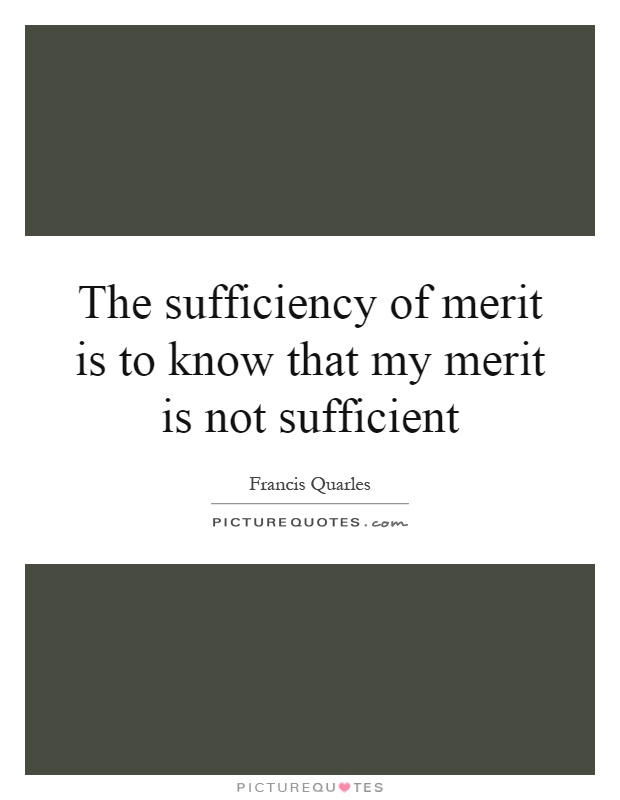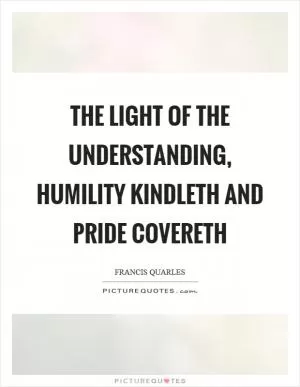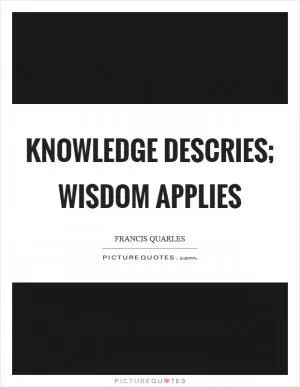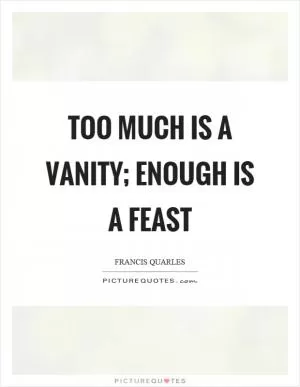The sufficiency of merit is to know that my merit is not sufficient

The sufficiency of merit is to know that my merit is not sufficient
Francis Quarles was a 17th-century English poet and writer known for his religious poetry and devotional works. One of his most famous quotes is, “The sufficiency of merit is to know that my merit is not sufficient.” This quote encapsulates Quarles’ belief in the importance of humility and self-awareness in the pursuit of spiritual growth and salvation.In the context of Quarles’ religious beliefs, the idea that one’s own merit is not sufficient is a recognition of the inherent limitations of human nature. Quarles believed that true merit and worthiness could only come from God, and that human beings were inherently flawed and imperfect. By acknowledging the insufficiency of one’s own merit, Quarles believed that individuals could cultivate a sense of humility and dependence on God for their salvation.
Quarles’ quote also speaks to the concept of grace in Christian theology. According to Christian doctrine, salvation is not earned through good works or merit, but is instead a gift from God that is freely given to those who believe in Him. By recognizing that our own merit is not sufficient, we are able to fully embrace the idea of grace and accept God’s gift of salvation with humility and gratitude.
Quarles’ emphasis on humility and self-awareness is a recurring theme in his poetry and devotional works. He believed that true spiritual growth could only come from a deep understanding of one’s own limitations and a willingness to submit to God’s will. By acknowledging that our own merit is not sufficient, we are able to let go of our pride and ego and open ourselves up to the transformative power of God’s grace.












 Friendship Quotes
Friendship Quotes Love Quotes
Love Quotes Life Quotes
Life Quotes Funny Quotes
Funny Quotes Motivational Quotes
Motivational Quotes Inspirational Quotes
Inspirational Quotes